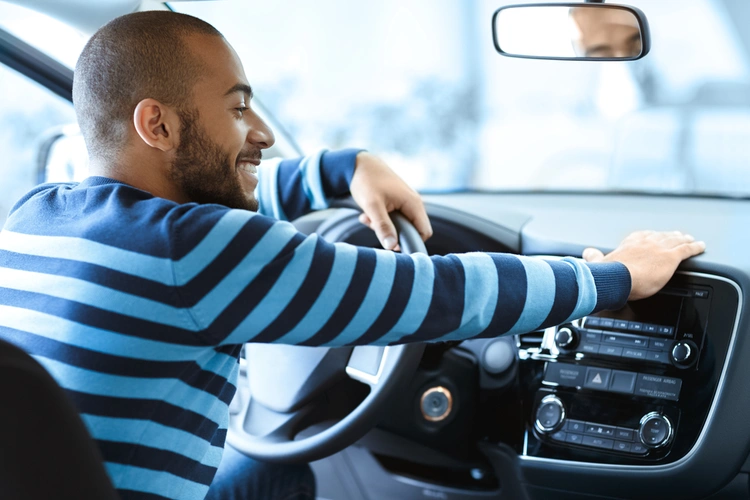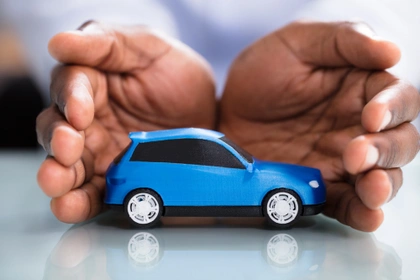How to check if a car is insured
It’s important to only drive a car you’re insured on because driving without insurance is illegal. You could get up to six points on your license and be fined up to £300 if you get caught.
Luckily, checking whether the car is insured is easy. You simply have to enter the car’s number plate into the Motor Insurance Database (MID) online. The MID is the UK’s centralised database for all insured motorised vehicles across all providers. You also have to declare that you are the car’s owner or registered keeper when you do this.
Don’t panic if you’ve just purchased car insurance and it isn’t on there yet. Although all providers have to add their policies to the database, it can take a little while for them to appear. If you’ve had your policy for, say, a week and it’s not on the database, it may be worth checking with your provider.
Is it illegal to insure a car you don't own?
No, it’s perfectly legal to get car insurance on a vehicle you don’t own. Many providers are willing to offer policies for third parties, so there is lots of choice out there. However, it’s worth being aware of the fact that some will only insure you on cars that belong to your:
- spouse or partner
- parent
- sibling
- employer
- or a hire company
There are a number of ways you can become insured on someone else's car, including:
Taking out an insurance policy
You could buy a full insurance policy on the car. Just bear in mind that you’ll have to tell the provider that you’re not the car’s owner or registered keeper. Some insurers won’t give you a full policy on a car that you don’t own, so you may have less choice and find yourself paying a higher price.
Becoming a named driver
Being a named driver means that you’re added to the owner or main policy holder’s existing car insurance policy. There’s usually a small admin fee. The cost of the policy as a whole may also be affected, because the provider now has to take into account factors about you while calculating risk, like:
- age and gender
- driving history, including claims and convictions
- relationship to the policyholder
- how long you’ve been driving for
For example, if you are a younger and less experienced driver, the price will probably go up. This is because the provider will see you as more at risk of making a claim.
Buying a short-term insurance policy
A short-term insurance policy is for when you want to drive somebody else’s car as a one-off. Perhaps you’re on holiday and only need a car for a week, well, you’d still need insurance (unless this is provided by the person who lent you the car).
You can get a short-term policy for anything from a few hours to a few weeks. It’s generally cheaper than being listed as a named driver on someone else’s policy or taking out a full policy. It also doesn’t violate the owner’s current policy, unless specifically stated, because the car will be insured separately while you are driving it.
Driving other cars insurance policy
A ‘driving other cars’ insurance policy lets you drive other, different cars with one insurance plan. These are quite rare now and almost impossible for under 25s to get, because they don’t allow the provider to factor the car into their risk assessment. There are still a handful of insurers who provide this type of policy, so it may be worth looking into if you drive different cars on a regular basis.
What kind of car insurance do I need if I don’t own a car?
The type of car insurance you need when you don’t own the car and aren’t the registered keeper is known as both non-owner insurance and non-driver insurance. You’ll know that you’re not the registered keeper if you aren’t named on the registration certificate, otherwise known as a DVLA V5C.
The registered keeper doesn’t have to be the person who actually bought the car but must be the person who drives it.
For example, if you drive a company car your employer will own it, but your name would be on the registration certificate.
Non-owner insurance can cover you for everything that your policy would if you own the car, depending on the policy and the insurer. In order to be safe, it’s best to shop around for a policy that covers you properly. Otherwise, you might find yourself with a rejected claim.
Do I need to take out insurance on a car I don’t own?
If you plan to drive a car, being covered by an insurance policy is a legal requirement in the UK. You can either take out insurance on the car yourself or be added to the owner or registered user’s existing policy.
Another option is considering this when you take out a policy on your own car. If you have a fully comprehensive insurance policy, some insurers may let you drive other people’s cars under third-party cover.
Whichever route you choose to go down, it’s best to check whether the car you plan to drive is insured and who the registered owner is as a first step. Then you can consider all the options available to you carefully, in order to make the best decision.
Compare cheap car insurance quotes
- Search over 100 providers
- Quick and easy comparison tool
Disclaimer: We make every effort to ensure content is correct when published. Information on this website doesn't constitute financial advice, and we aren't responsible for the content of any external sites.






